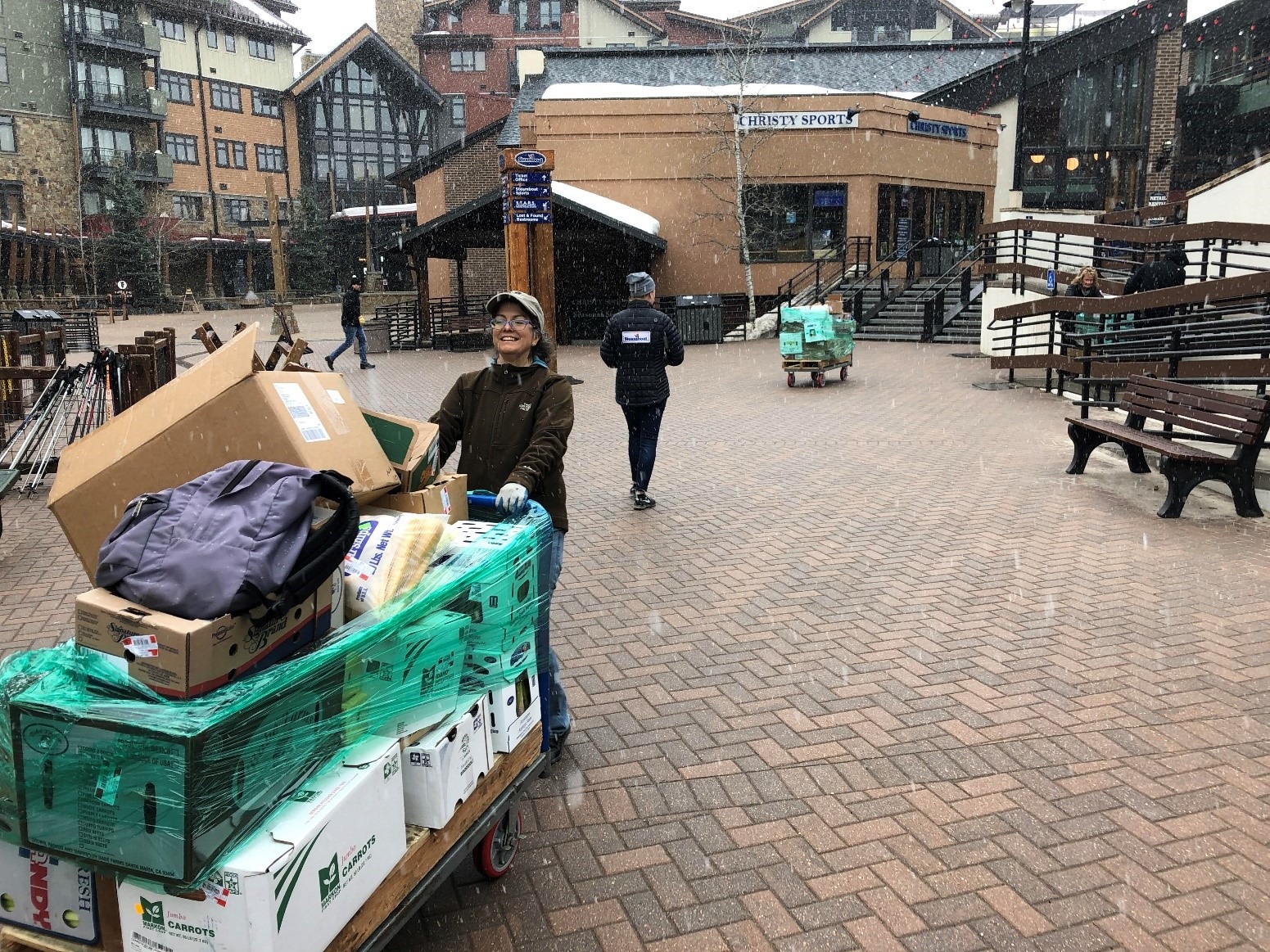Our team of five regional food coordinators works across Colorado to develop local food systems centered around equity. They accomplish this work by placing producers and food access organizations at the nexus of solutions. Check out our Q&A with Russell Goodman, executive chef at Elkstone Farm and one of our regional food coordinators, below.
Where did your interest in food justice begin?
When I was young, I had no idea what it meant to be hungry. As an adult, I experienced profound food insecurity. My eyes were opened to the broader issue of hunger in our society. I was also the grateful recipient of services from food pantries and soup kitchens and now enthusiastically support their missions.
As a chef, I believe it is my responsibility to interact with our community’s food systems in ways that minimize waste. I also work to maximize opportunities to rescue some of the billions of pounds of food discarded every year. I know that building equitable and sustainable local food systems will help fight food insecurity.
“Food justice work is an ancestor’s errand. I do this work not only because I was hungry, but because those who came before me were hungry. It is our mandate to fight tirelessly to ensure that our descendants do not know the hunger of their predecessors.”
Russell Goodman
How has the pandemic impacted your community’s needs?
Community need has undeniably grown because of the pandemic, but communities appear to have pivoted to respond in unique ways. In Steamboat Springs, numerous restaurants and a bowling alley changed their models to serve meals to those in need. This elevated need will continue after the pandemic and it is our responsibility to develop systems and programs to meet that need.
What’s keeping you motivated?
I live in a rural region of Western Slope Colorado where, at times, it feels like we lack an advocate voice at the state level. But supporting the Colorado Food Pantry Assistance Grant Program and watching it have a real impact in our community is very meaningful.
As a regional food coordinator, I can help build new channels of commerce and strengthen our foodshed by linking food pantries and local producers. This work is enduring and has a real effect on the food that is available to consumers at pantries. I wanted to be a regional food coordinator to participate in this process on behalf of my community.
This work is done at the intersection of public policy and human well-being. In many such policy-driven initiatives, it is difficult to see change taking place in real-time. As regional food coordinators, we have seen incredible growth through statewide initiatives and local, purchase-driven funding programs that have popped up since the beginning of the pandemic. Seeing the direct impact of this work is incredibly special and provides the energy to keep going.
What challenges do you face while doing this work?
Working within an entrenched system sometimes means that we encounter roadblocks forged by inequity or inefficiency. It is our challenge to engineer change while working within the very system we are changing.
How do you envision the regional food coordinator work growing?
Colorado is a vast and diverse state with many different agricultural, geographical, and cultural centers. I envision more regional food coordinators joining the effort to represent the interests of communities more broadly throughout the state. I also envision us developing an information management infrastructure to support our work, improving the accessibility of our data internally and to others.
Learn more about Hunger Free Colorado and our partnership opportunities, here.

